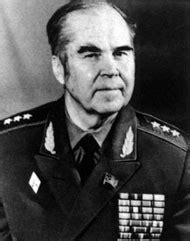A Quote by Dmitri Volkogonov
It is surely indisputable that no single leader in the twentieth century exerted as great an influence on the course of world history as Lenin.
Related Quotes
The great crimes of the twentieth century were committed not by money-grubbing capitalists but by dedicated idealists. Lenin, Stalin, and Hitler were contemptuous of money. The passage from the nineteenth to the twentieth century has been a passage from considerations of money to considerations of power.
Film is more than the twentieth-century art. It's another part of the twentieth-century mind. It's the world seen from inside. We've come to a certain point in the history of film. If a thing can be filmed, the film is implied in the thing itself. This is where we are. The twentieth century is on film. You have to ask yourself if there's anything about us more important than the fact that we're constantly on film, constantly watching ourselves.
It has been said that the three great develpments in twentieth century science are relativity, quantum mechanics, and chaos. That strikes me the same as saying that the three great developments in twentith century engineering are the airplane, the computer, and the pop-top aluminum can. Chaos and fractals are not even twentieth century ideas: chaos was first observed by Poincare and fractals were familiar to Cantor a century ago, although neither man had the computer at his disposal to show the rest of the world the beauty he was seeing.
Can and must! The proclamation of this new conception of [Joseph Stalin] is closed by the same words, "Such are in general the characteristic features of Lenin's conception of the proletarian revolution." In the course of a single year Stalin ascribed to [Vladimir] Lenin two directly opposed conceptions of the fundamental question of socialism. The first version represents the real tradition of the party; the second took shape in Stalin's mind only after the death of Lenin, in the course of the struggle against "Trotskyism".
The idea that Christianity is basically a religion of moral improvement... has its roots in the liberal Protestantism of the late nineteenth century and early twentieth century... It is this stereotype which continues to have influence today... But then came the First World War... What had gone wrong was that the idea of sin had been abandoned by liberal Christianity as some kind of unnecessary hangover from an earlier and less enlightened period in Christian history.
Modernism really started with people getting infatuated with the idea of "it's the twentieth century, is this suitable for the twentieth century." This happened before the First World War and it wasn't just the soldiers. You can see it happening if you read the Bloomsbury biographies. It was a reaction to a great extent against Victorianism. There was so much that was repressive and stuffy. Victorian buildings were associated with it, and they were regarded as very ugly. Even when they weren't ugly, people made them ugly. They were painted hideously.
I'll say that this is probably the best time for poetry since the T'ang dynasty. All the rest of the world is going to school on American poetry in the twentieth century, from Ezra Pound to W. S. Merwin, and for very good reason. We have soaked up influence in the last century like a sponge. It's cross-pollination, first law of biology, that the more variety you have the more health you have.
In the middle of the nineteenth century, the United States embarked on a new relationship with death, entering into a civil war that proved bloodier than any other conflict in American history, a war that would presage the slaughter of World War I's Western Front and the global carnage of the twentieth century.







































